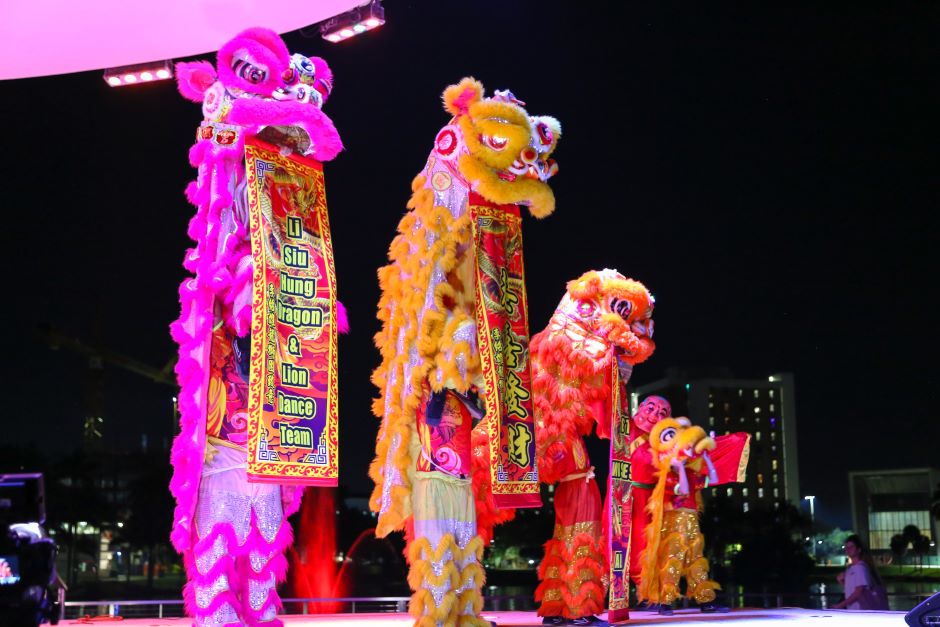"It truly creates a homely feeling, connecting to your heritage this way,” said Taylor Lin, a first-year studying business analytics and class liaison for the Asian American Students Association (AASA).
Lin, who helped coordinate the organization’s Lunar New Year event, emphasized how significant the campus celebration was on Monday night. One of the largest holidays in east and southeast Asia, the Lunar New Year commemorates the beginning of the lunar calendar, whose months follow moon cycles. The week-long festivities emphasize reconnection with family and good fortune through the gathering for symbolic meals with loved ones. Here at the University, the Asian American Students Association and the Chinese Student Association partner to offer celebration to those who recognize the holiday and embrace Asian culture with the broader University community.
“Creating this space—especially considering our population of international students—as well as educating other communities is what makes this event so special. Although we may physically be far, we can still provide community,” said Mintra Patlek, president of the AASA.
From playing traditional Chinese games to busting myths about Islam, students were immersed in the diversity of Asian culture with a stacked assortment of student organization tabling. Helping to inform students while engaging them in ceremonial activities, the event reflected how the Asian diaspora spans a variety of cultures. Participating students also received red envelopes for good fortune—a Lunar New Year tradition—and vouchers for a complimentary meal, highlighting the importance of dining for the holiday.
“Food is a huge aspect of the Lunar New Year but also Asian culture. We can connect with our roots through cultural food, while sharing such an important aspect with other members of the University community,” added Patlek.
The event concluded with an array of performances, including fireworks, parades, and dragon dances—popular traditions for the Lunar New Year. Student organizers hoped the event created a safe space for all students to enjoy.
“I hope this event allowed students a sense of security and community, while also expanding cultural awareness on campus,” added Lin.

